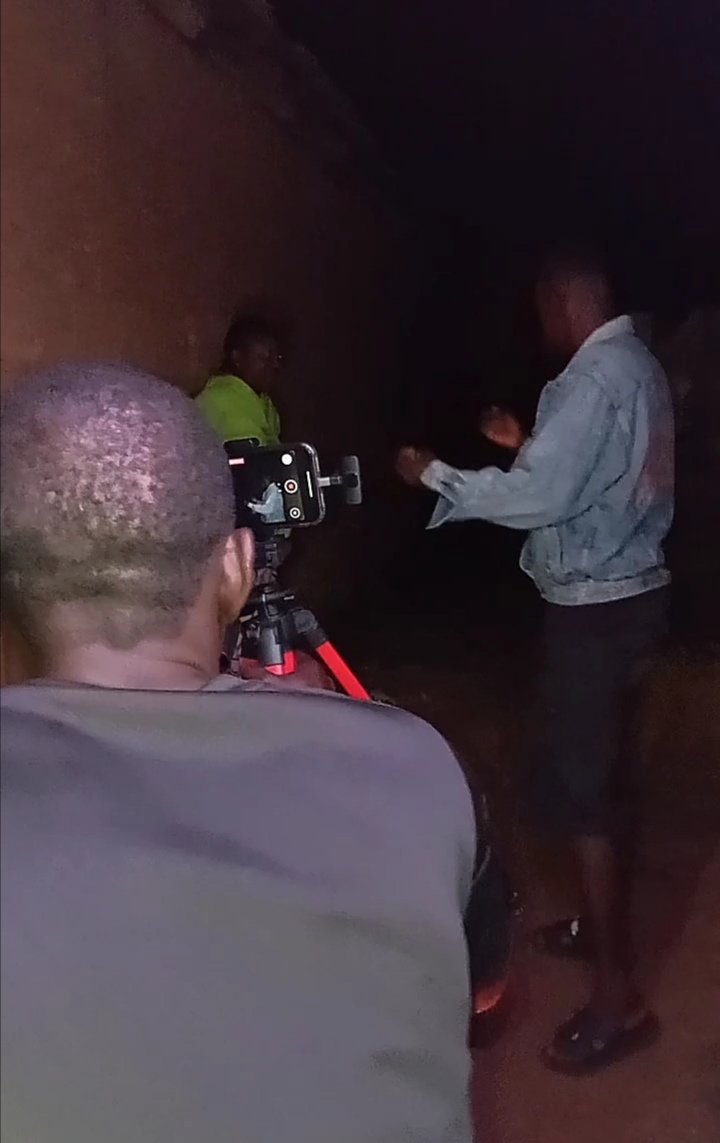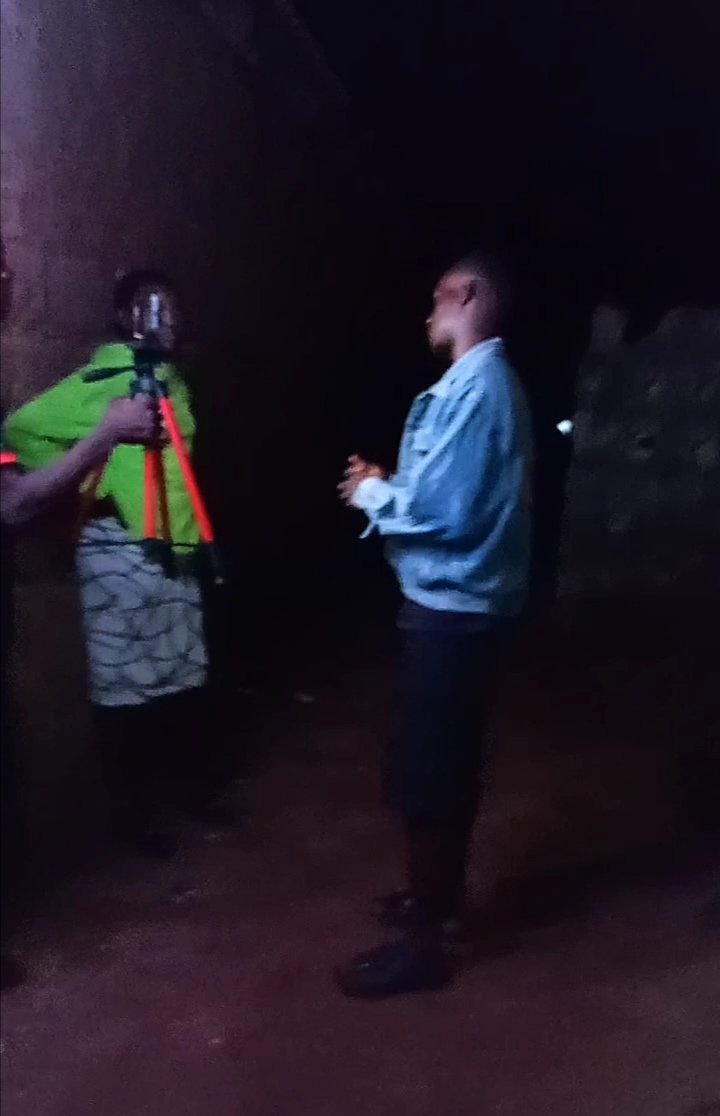NIGHT Filming. WHY IT'S EASIER THAN DAYTIME NOISE

As an aspiring filmmaker, I unexpectedly discovered the vast difference between shooting during the day and at night on a set. At first glance, most people would assume that shooting during the day, with natural light and good visibility, is easier. However, when it comes to sound quality, environmental control, and focus, shooting at night is often the simplest and most efficient option, especially in urban and densely populated areas. The main reason is simple but crucial: human noise. The noise of human activity is overwhelming, uncontrollable, and persistent during the day. Whether it's the noise of the market, honking car horns in traffic, loud shouts from across the street, or unpredictable background noises, recording clean sound during the day is a huge challenge. For filmmakers, especially those with limited budgets and basic equipment, these audio interferences can ruin entire scenes. Shooting during the day seems ideal; After all, the sun provides abundant light. But many filmmakers quickly discover that the day brings with it an uncontrollable soundtrack of human activity. In cities and towns, even in seemingly quiet neighborhoods, life is constantly in motion.

Children play in the street, their voices heard from miles away. Street vendors tout their wares and services, vying for attention. Car horns and engine noise fill the air at irregular intervals. Neighbors chatter loudly, music blares from nearby shops, and passersby repeatedly interrupt the scene out of curiosity. All of these sounds intrude on microphones, even the best directional microphones. Sound editing in post-production has its limitations. Background noise can interfere with dialogue, making actors' lines unclear or forcing the crew to re-record dialogue in the studio—a process called ADR (Automated Dialogue Replacement), which is time-consuming and expensive. Crowd control is also more difficult in daylight. People are naturally curious when they see a camera crew. In daylight, it's almost impossible to prevent spectators or passersby from accidentally wandering into the frame and causing unnecessary delays. Children, in particular, love meeting film crews, fascinated by the equipment and the process. While their enthusiasm is endearing, it poses a serious obstacle to efficient filming. At night, the dynamic changes dramatically. As the sun sets, most people retreat into their homes, markets close, and the streets become quieter. A natural silence prevails in residential areas. This decrease in ambient noise presents an invaluable opportunity for filmmakers. Clearer sound: With fewer people around and most businesses closed, the ambient noise level drops significantly. This silence allows the sound crew to capture dialogue, ambient sounds, and subtle audio nuances more clearly without the need for excessive editing in post-production. Fewer interruptions: Without moving people, filmmakers can focus without frequent interruptions. There is less chance of people walking into the frame, shouting from a distance, or unnecessary honking. Lighting control: Although nighttime filming requires artificial light, this can be an advantage. Filmmakers have complete control over the lighting of the scene, the way shadows fall, and the mood or tone of the image. During the day, filmmakers are at the mercy of the sun's position, cloud cover, and unpredictable changes in natural light. Atmospheric advantage: Nighttime brings a special mood and atmosphere that cannot be replicated during the day. Scenes shot at night often convey a sense of mystery, intensity, or serenity, depending on how they are lit and framed. The stillness of the night enhances these emotions and draws viewers deeper into the story. I remember one particular project where we had to shoot a deeply emotional scene on a residential street. We originally planned the shoot for the afternoon, thinking natural light would save us on lighting rental costs. But by the afternoon, we realized our mistake. The noise of speeding motorcycles, screaming children, loud music from a nearby complex, and vendors calling for customers made it impossible to capture the subtle nuances of the dialogue. After several takes were interrupted by the noise, we spontaneously decided to postpone the shoot until 9 p.m. that same evening.

That night, everything changed. The street was almost deserted. The vendors had long since left, the children had fallen asleep, and only the occasional insect chirping broke the silence. Our actors performed with heightened concentration and were undisturbed by outside distractions. The recorded sound was flawless and required little correction. We controlled every aspect of the scene's lighting, creating exactly the desired atmosphere. From that day on, I began to appreciate the incomparable advantages of filming at night, especially in densely populated areas where daytime peace and quiet are a luxury filmmakers can't afford. While filming at night offers advantages in sound and crowd control, it requires strategic planning, especially regarding lighting and safety. Here are some key considerations: Lighting: Investing in good artificial lighting is crucial. This includes key lights, fill lights, and backlights, which help illuminate the scene while maintaining a natural or stylized look. LED lights are popular for filming at night due to their brightness, portability, and energy efficiency. Power Supply: Make sure you have sufficient power sources (generators, batteries, or portable power packs) to operate lighting and equipment. Without a reliable power supply, a night shoot can come to a standstill. Safety Measures: Night filming can present safety risks, especially in unfamiliar or remote locations. A small security team or a local guide can ensure the crew's safety. Additionally, reflective gear and emergency lighting can prevent accidents. Permits: In urban areas, some authorities require special permits for night filming, especially if the lighting might disturb local residents. Always check regulations to avoid legal issues. Planning. Night filming can be physically demanding for cast and crew. Filmmakers must balance productivity with the well-being of everyone on set and ensure adequate breaks, refreshments, and a clear shooting schedule to avoid strenuous night shoots. Despite the advantages of night filming, certain stories and scenes require daylight. In such cases, filmmakers should use techniques to minimize crowd noise. Film early in the morning. Filming at dawn, between 5 and 7 a.m., often offers a quieter atmosphere before the city fully awakens. Location Scouting: Look for secluded or controlled environments, such as private properties, restricted-access parks, or specially designed sets to minimize disturbance to the public. Sound Equipment: Invest in high-quality directional microphones, windscreens, and lavalier microphones to better isolate dialogue from background noise. Soundproofing Techniques: Temporary barriers or acoustic blankets can help block noise coming from certain directions during filming. Post-Production Tools: With modern audio software, background noise can sometimes be isolated and reduced, but this is never as effective as recording clean audio on set. In addition to the technical advantages, night scenes offer creative opportunities for storytelling. The play of light and shadow can convey tension, romance, danger, or mystery. The glow of city lights can convey the silhouette of a character. Thank you for your time and God bless you all.
Nice work boss..u re doing well
Thank you so much brother. I really appreciate your words of encouragement anytime you come to my blog. God bless you
You're doing well, getting the best it's what is expected in anything and everything we're doing!
Keep it up bro!!
Thank you so much. I really appreciate you a lot
You are doing well boss.
Thank you so much brother. I really appreciate it
Great work you are doing
Thanks man. I really appreciate your comment seriously
You are doing absolutely amazing boss
Thank you so much brother.
Well done creative I am learning a whole lot here thank you for sharing
Thank you so much.
Totally agree! Nighttime filming can be a game-changer, especially in urban areas. The reduced noise and crowd control make it so much easier to capture clean sound and focus on the scene. Great insights on the benefits and challenges of nighttime filming.
Thank you so much brotherly. I so much grateful for coming around brother
The great producer keep growing 👍
Thank you so much brother
You really love this your film making gig
I love your passion if only I was close this would have been the perfect opportunity to learn up close
I admire your dedication
Thank you sir
Thank you so much brother. Anytime you are ready I will put you through bro
If you have good lightning it's so better,the calm environment.
Yeah that's true. Thank you so much brother